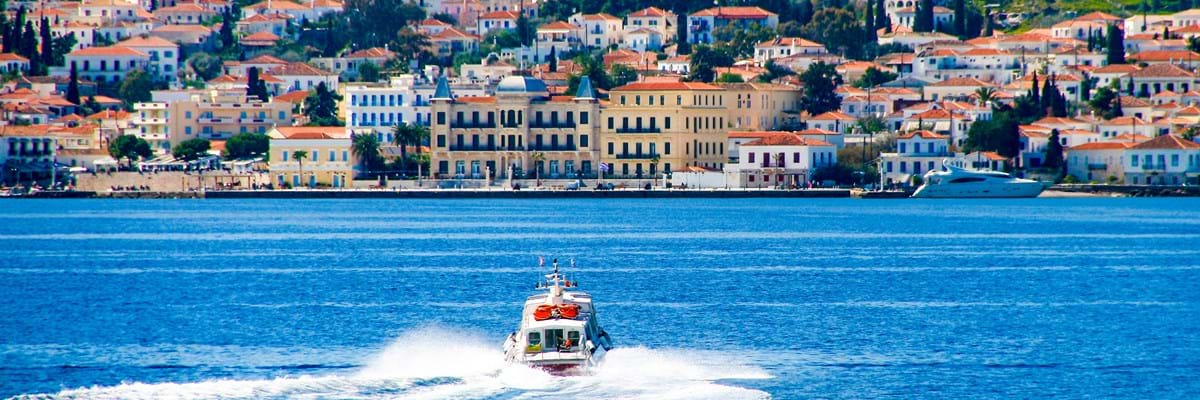There are many things that make stylish Spetses special, but two are extraordinary. Firstly, private cars are banned from the island with just eight taxis operating from the central port and most locals travelling by motorbike. You will also see good vehicles for commercial use only. Second, planning restrictions prevent high-rise buildings and “modern” designs. So this traditional little island, which has a history that stretches back 10,000 years, has been able to retain a true sense of old Greece.
There is only one town. It’s white houses with red-tiled roofs stretch up the hill behind Dapia the “modern” port where ferries dock and horse-drawn taxi carriages wait on the quayside.
Then there is the picturesque old harbour where luxurious yachts and old wooden caiques bob alongside each other. There is an intriguing mix of old and new in the town too.
Imposing captains’ houses left from the era when Spetses was rich through its shipping trade are mixed with restaurants, bars and clubs busy with visitors from abroad and mainland Greece.
Only one road runs from Spetses Town around this lovely island. It’s about 15 miles long and links the sand and shingle beaches and secluded coves with pine forests, soaring green hills, olive groves, lemon trees and almond orchards.
Three thousand years ago the island was called Pityoussa, which meant “covered in pines”. When the Venetians ruled they called it the “Isola di Spezia” (spice island, hence Spetses) because of the aromatic herbs.
One herb, called throubi, has such a pungent smell it’s jokingly said to make the islanders a little bit crazy. One resident certainly wasn’t crazy. He built the road, had tens of thousands of trees planted to replace those cut down for shipbuilding and imposed a condition that the land would never be built on.
Of course, it has not been possible to make time stand still. There are a handful of conventional taxis, a few lorries and agricultural vehicles and lots of mopeds and scooters. But even at peak times it’s possible to find peace and quiet.
The classic mystery novel The Magus was set on Spetses by author John Fowles, who lived and taught at a school there. He described the island as “effortlessly beautiful”. It still is.











